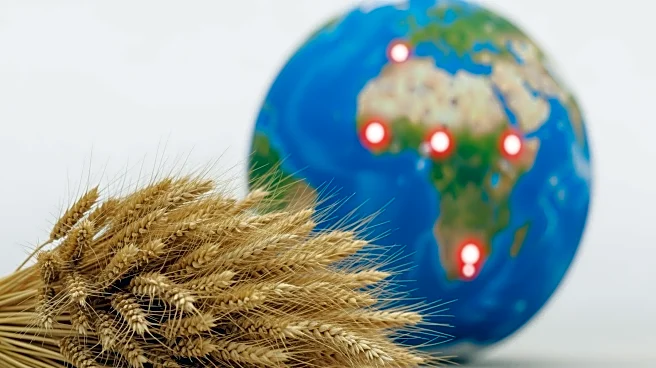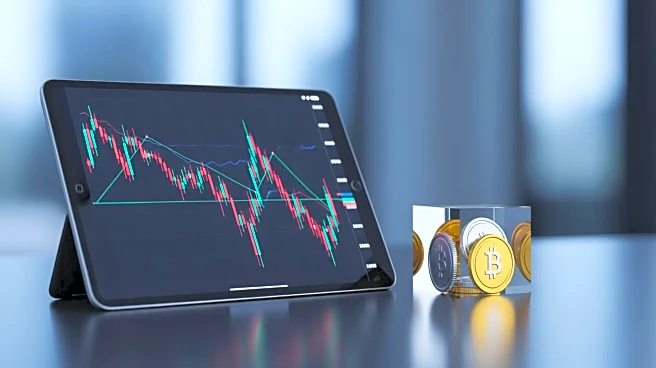What's Happening?
Fertilizer prices have surged due to geopolitical tensions and export restrictions imposed by China and Russia, two of the world's largest fertilizer producers. On November 3, 2025, China implemented new
export restrictions to stabilize domestic supplies, which has disrupted global supply chains. This has led to increased costs for international buyers, potentially resulting in higher food prices worldwide. The situation is exacerbated by simultaneous challenges in the automotive sector, where German suppliers are seeking exemptions for chip exports from China amid declining demand for electric vehicles. The automotive market is projected to fall between 3% and 6.9% in October 2025, primarily due to the expiration of federal tax credits for electric vehicles.
Why It's Important?
The rise in fertilizer prices is significant as it directly impacts food production costs, potentially leading to higher food prices globally. This situation poses a threat to food security, especially for smallholder farmers who operate on thin margins. The automotive sector is also affected, with supply chain disruptions and declining demand for electric vehicles creating a 'perfect storm' for the industry. These developments highlight the vulnerabilities in global supply chains and the need for diversification to reduce reliance on a few key countries for critical inputs. The economic impact is widespread, affecting household budgets and potentially leading to increased financial strain for consumers.
What's Next?
Policymakers face the challenge of ensuring stable supplies of essential goods like fertilizers and semiconductors while navigating an increasingly fragmented global economy. There is a call for greater diversification of supply chains to mitigate the risks of over-reliance on a few countries. However, achieving diversification is complex, particularly in industries like fertilizer production and semiconductor manufacturing. Consumers may need to adjust to higher food prices and reduced availability of new vehicles, which could lead to tighter household budgets and increased financial pressure.
Beyond the Headlines
The current situation underscores the interconnectedness of global supply chains and the potential for geopolitical actions to have far-reaching economic consequences. The use of trade restrictions and export controls as tools of economic statecraft is becoming more common, adding to global economic volatility. The ripple effects of these developments are likely to persist, affecting various sectors and stakeholders for an extended period.









